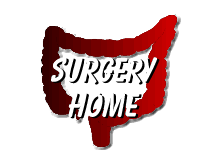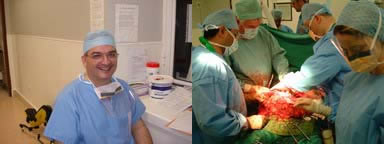 |
 |
|
|
All images, illustrations & flash animation are copyrighted to Deya Marzouk, unless stated otherwise. Copy is prohibited without written permission. Innovative techniques mentioned in this web site were all devised by Deya Marzouk. Please Credit Deya Marzouk if any material is copied from here (with prior permission only) |
Abnormal reflux of stomach juice into the oesophagus result in heart burn. This may also be a cause of persistent cough. Other patients will have chest pains secondary to oesophageal spasm. In severe cases, patients may have inflamed lining of the lower oesophagus, ulceration, bleeding or may develop a stricture (narrowing). It is also linked into a disease called Barrett's oesophagus, where acid reflux result in change of the type of lining of the oesophagus and this disease is pre cancerous.
Anybody who do not respond quickly to the use of antacids or a short course of PPIs and some dietary modifications are advised to have a screening endoscopy. This can be useful in assessing the effect of reflux on the oesophageal mucosa and deciding whether further testing is required, as well as deciding whether medical treatment (at least initially) or surgery is appropriate
Medical treatment is usually successful in the majority of patients. First patients need some dietary adjustments & restrictions (such as avoiding spicy food, excessive coffee, alcohol & late meals). Some patients will respond fully to this and may need occasional use of antacids or short courses of proton pump inhibitor drugs (PPIs). Other patients will need to remain on PPIs or similar medications for long periods or permanently.
Anti reflux procedures, whether open or laparoscopic have been shown to be effective in treating acid reflux. They are indicated in patients with persistent symptoms despite medications, those who have developed complications and in those who do not want long life drug treatment. Current thinking suggests that it is also possible that in the long term surgery may be more likely to be more protective in preventing Barrett's oesophagus and development of oesophageal cancer that affect a small number of reflux patients
The choice of the procedure depends on several factors, but mainly on surgeon's preference. There is no doubt that loose (floppy) fundoplication is the technique of choice. There some evidence to suggest that 360 degree (total or complete) wrap is associated with lower rate of recurrent reflux symptoms, but may be associated with increased risk of dysphagia (difficulty in swallowing) and gas bloating, when compared with 270 degree (partial) wraps.
What you need to know
In order for these operations to succeed, patients must be selected appropriately. Patients need preoperative manometry & PH metry for proper evaluation.
Most patients are cured of heartburn. Some have improved symptoms, but may require postoperative medications (in reduced doses)
Some operations are not successful, even when there is objective evidence postoperatively (by manometry & PH metry testing) that reflux have been abolished
The advantage of laparoscopic procedures is the rapid recovery and quick return to work. Many of these procedures may be even done as day cases
Obviously, first are the various risks inherent in this surgery. Secondly, whether they would be happy with a total wrap or whether they would rather have a partial wrap.
 |
 |
|